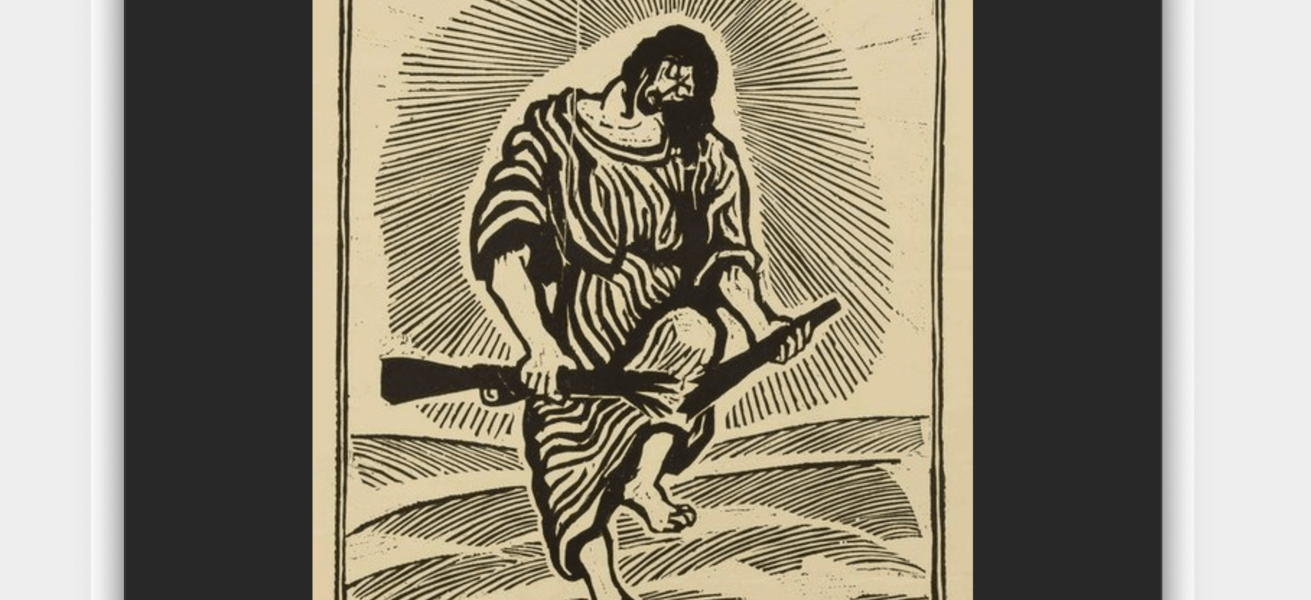(P1) Judgments of value are non-(correspondence-)truth-apt because value-realism is false.
(P2) Judgments of fact are (correspondence-)truth-apt because (physical?-)realism is true.
Rebuttal to (P1) & (P2):
Our full cognitive-affective capacities are involved in every factual judgment we make about the way the world is. That is, evaluative and factual judgments are not separable in ordinary practice. Evaluative judgments are part and parcel of the way we conceptualize, categorize, organize the (physical, factual) world of our experience. (For example, we see the objects we see because they are important to us.) Either this means that judgments of fact are too non-objective to be correspondence-truth-apt (i.e., my claims involve the rejection of (physical?-)realism, or else this means that judgments of (moral) value are objective enough (in virtue of their intimate association with judgments of fact) to be correspondence-truth-apt (i.e., my claims involve the affirmation of value-realism).
Possible response to the above suggestion:
While a modest (physical?-)realism can accomodate our subjective contribution to experience, what makes it count as a realism is that there are objective, subject-independent thingummies which place limits on our cognitive behaviors with respect to conceptualizing the world of our experience (e.g., our defining discrete objects in our experience). We can still sensibly reject value-realism by denying that there are any such objective, subject-independent thingummies which place limits on our cognitive behaviors with respect to morally evaluating objects in the world of our experience.
----------------------------------------
* (The OED entry for thingummy is better, but probably not something most can directly link to:
)Also 8 thing-o-me, thing-o'-me, 9 thing-o-my, thingamy, -ammy, -ummie, -umy. [f. THINGUM + -Y (?dim.).]
Used (in undignified speech) to indicate vaguely a thing (or person) of which the speaker cannot at the moment recall the name, or which he is at a loss or does not care to specify precisely; a ‘what-you-may-call-it’. Also in extended form thingummytight (-tite, etc.).
1796 F. BURNEY Camilla III. 259 Poor miss thing-o'-me's hat is spoilt already. 1803 FESSENDEN Terr. Tractor. IV. (ed. 2) 174 note, The little whalebone thingamy which the Duke of Queensbury run at New Market. 1807 W. IRVING Salmag. (1824) 38, I mean only to tune up those little thing-o-mys, who represent nobody but themselves. 1819 ‘R. RABELAIS’ Abeillard & Heloisa 101 A passport to a brilliant court Where all great thingummies resort. 1862 THACKERAY Philip viii, What a bloated aristocrat Thingamy has become! 1904 Times 11 Jan. 12/2 Mr. So-and-so has..‘entrusted’ its little carcase to Mr. Thingummy, birdstuffer. 1937 G. FRANKAU More of Us xvii. 177 Quick. The small green phial. It's in my bathroom. In the thingummytightThe corner cupboard. 1939 J. CARY Mister Johnson 23 What's the trouble? Why, it's thingummytite, aren't you? 1977 D. CLARK Gimmel Flask viii. 147 We've got a thingumitite with us...a sort of visionary. Young cops with fantouche ideas! 1980 D. BOGARDE Gentle Occupation i. 21 Nothing in the taps of course because the terrorists had buggered up the hydroelectric thingummytites.
* I probably should use this specialized (specially used that is, when you want to be absolutely general) metaphysical term more often in my writing. I recall disagreeing with Dr. C over using "entity" or "subsistence" in my Senior paper on the Trinity. I rebelliously stuck with "entity" I think (to refer to a Person), because I thought using "subsistence" involved me in metaphysical claims I didn't intend to make (of course, that was why Dr. C was trying to get me not to use "entity"!). I really should have used "thingummy"--that captures precisely my intended meaning in that context.
------
"He Himself is our Peace." (Eph 2)





